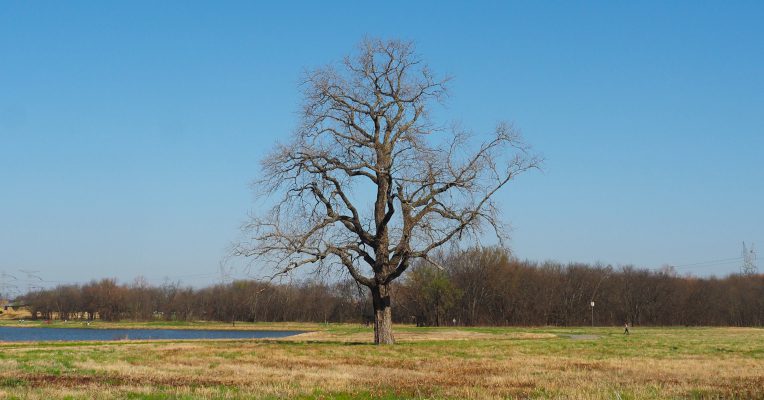The U.K. newspaper The Guardian had an essay last week titled The big idea: do we still need religion? by Robin Dunbar. It’s yet another “rational explanation” for why religion developed and why, yes, we still need it.
As such, it’s not bad. It correctly identifies two reasons why religion persists:
One is the fact that, on average, religious people are generally happier, healthier and live longer. For better or for worse, they also have easier deaths when the time comes.
The other is that religious people are more likely to feel that they belong to a community. In a survey I ran, those who reported attending religious services were depressed less frequently, felt their lives were more worthwhile, were more engaged with their local community, and felt greater trust towards others.
These enormous benefits mean not only that religion has enduring appeal, but that religious practices make you “fit” in the evolutionary sense – and thus they tend to stick around.
These are good explanations, even though they’re grounded in a materialist worldview. Anti-religionists claim that these benefits could be obtained through non-religious means. They’re mostly right, but the few attempts to do so have been less than successful.
Dunbar identifies another reason why religion persists, one that most non-theistic analysts overlook.
Being able to engage in religious discussion – and hence explain the significance of the rituals and why you should take part – depends on the kinds of mind-reading, or “mentalising”, skills that play a crucial role in managing our everyday relationships. These are the skills that allow us to understand what someone else is thinking, to grasp their intentions.
The same cognitive abilities that give us religion also allow us to ask why the world has to be the way it is (giving us science) and to imagine entirely fictional worlds (giving us literature).
Thus, you could no more have a world where religion was cast aside as superstition than you could have one without science or stories. And that would be a very different world indeed.
This essentially says that religion is an evolutionary spandrel – a by-product that has no specific purpose but that persists nonetheless.
The problem with this and other “rational explanations” for religion isn’t that they’re wrong. For the most part, they aren’t. The problem is that they’re incomplete.
Religion provides context for living
The biggest misunderstanding about religion is the idea that it’s all about what you believe. That leads people to assume that once you stop substituting mythology for science and history, religion is unnecessary. But for most people in most of the world throughout most of history, religion was and is about what you do, who you are, and whose you are.
Articles like this pick up the “what you do” part, and that’s a good thing. But “who you are” and “whose you are” isn’t just about who’s standing beside you in the Beltane circle. It’s also about where you came from, what you value in life, and which virtues you prize above others.
We came from our ancestors who came from their ancestors, a chain running across multiple continents (four in my case) and stretching back to the dawn of humanity. Our sacred stories teach us what’s important in life, and teach us to live heroically even in the face of hardship. Our rituals connect us to each other, but also to our Gods, to our ancestors, and to all the other persons with whom we share this world.
Done wrong, context for living can turn into fundamentalist rules and restrictions that might (or might not) have made sense centuries ago but that are harmful and counterproductive now – not to mention oppressive at the individual level.
Done right, this helps us understand who we are and where we belong.
Religion provides tools for dealing with the Big Questions of Life
This article hints at this when it says that religious people “have easier deaths when the time comes.” I’d like to know why Dunbar says this and specifically how he thinks they’re easier, but intuitively it makes sense. Religion helps us deal with the big questions of life.
I know some non-theistic people who say “when I’m gone, I’m gone, and I’m good with that.” Some of them are telling the truth. Others are trying to convince themselves they’re good with it – not because they’re afraid of going to hell but because they’re afraid of non-existence. Religion – including non-theistic religion – provides the spiritual and metaphysical support we need to deal with the inescapable fact that all of us will die someday.
It’s not just our own deaths. It’s also the deaths of loved ones, illnesses and disabilities, pandemics and natural disasters. Other animals are able to survive these challenges, but our greater intellectual capabilities force us to confront existential matters that never occur to them.
I have my own thoughts as to what comes after death. I also freely admit I might be wrong. But because of years and years of Pagan religious practice I’m not afraid to take that big step into the Otherworld.
Years of Christian religious practice caused more harm than good.
Religion is built on religious experience
This is what this article and every article like it completely misses: we have religion because we have religious experiences.
Many of these experiences are ordinary: encountering mountains and oceans, beautiful sunsets, and my favorite, standing under the night sky and realizing that the universe is so big and so old, we are so small and so brief, and yet here were are, contemplating it all.
Some could be ordinary but defy the odds: we pray for assistance and we get it. We do spells and the magic works. We encounter a ghost, or some Otherworldly creature that happens to be in this world.
On a few occasions, these experiences are big and dramatic. A God reaches out and touches you, in a way that leaves you with no doubt that Gods exist, because nothing you’ve ever experienced in your life has been so real.
Not everyone has big religious experiences. I’m convinced most – and perhaps all – of us have smaller religious experiences, but too many of us rationalize them away.
Religious experiences are one part of a virtuous circle of experience, belief, and practice. We have experiences. We interpret them, and in doing so we form beliefs. Those beliefs inspire us to do certain things and live certain ways – they inspire practice. Our practices facilitate further experiences, and the process goes on and on in an ever-deepening, ever more meaningful circle.
If we somehow did away with all religion, in a matter of days we’d start reinventing it again. Someone would have a religious experience and would intuitively start to build a new religion – an organic religion.
Religion will always persist
It’s good to examine the rational benefits of religion. Among other things, it helps explain why many people hold onto their religious identities even though they don’t practice them very often.
The problem comes when we assume anything “rational” must be materialistic and non-theistic. Our religious experiences are real and our interpretations of them can be rational even if they don’t have a materialistic explanation.
Our experiences are why religion persists, and why it will always persist.



















